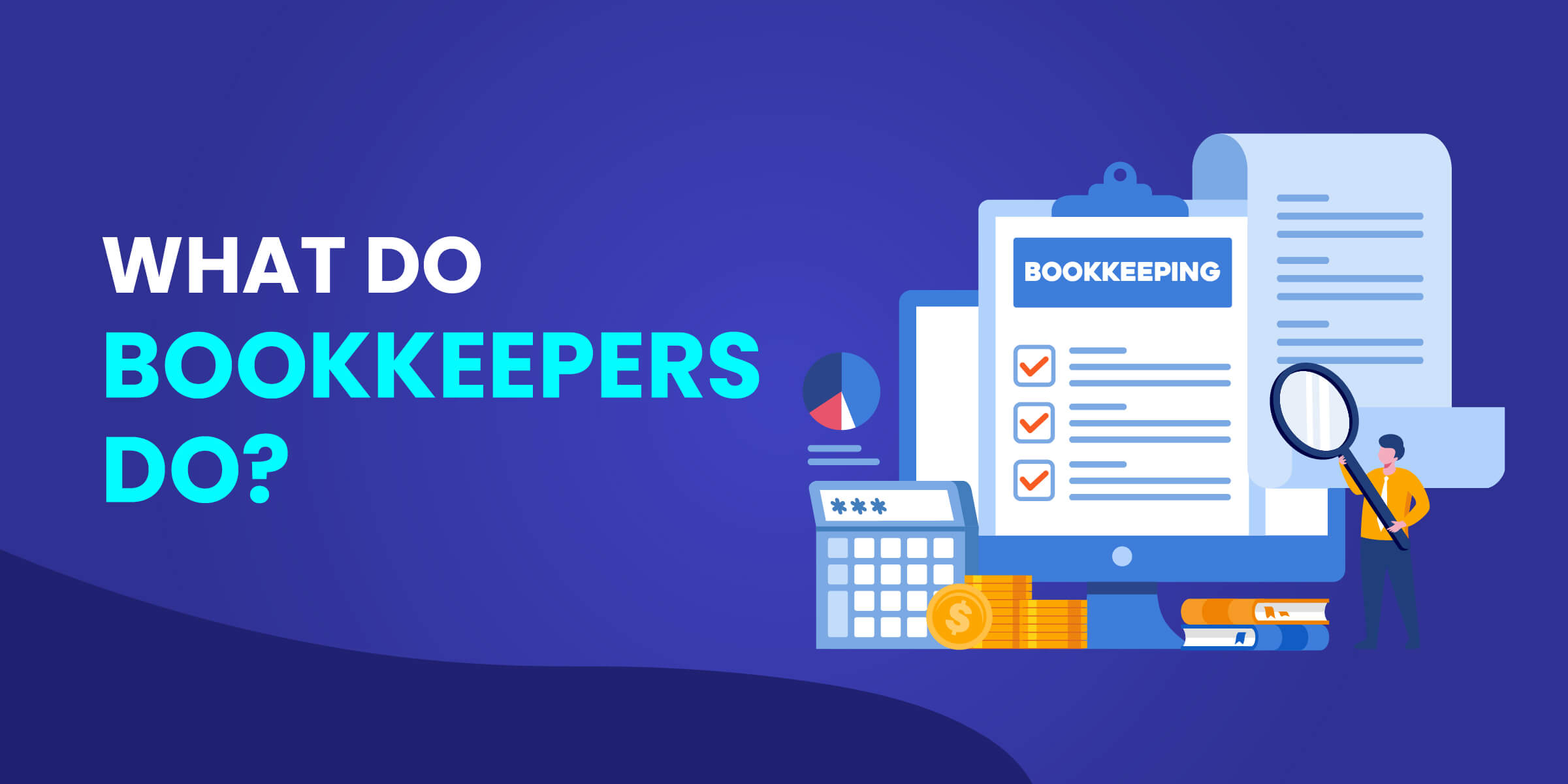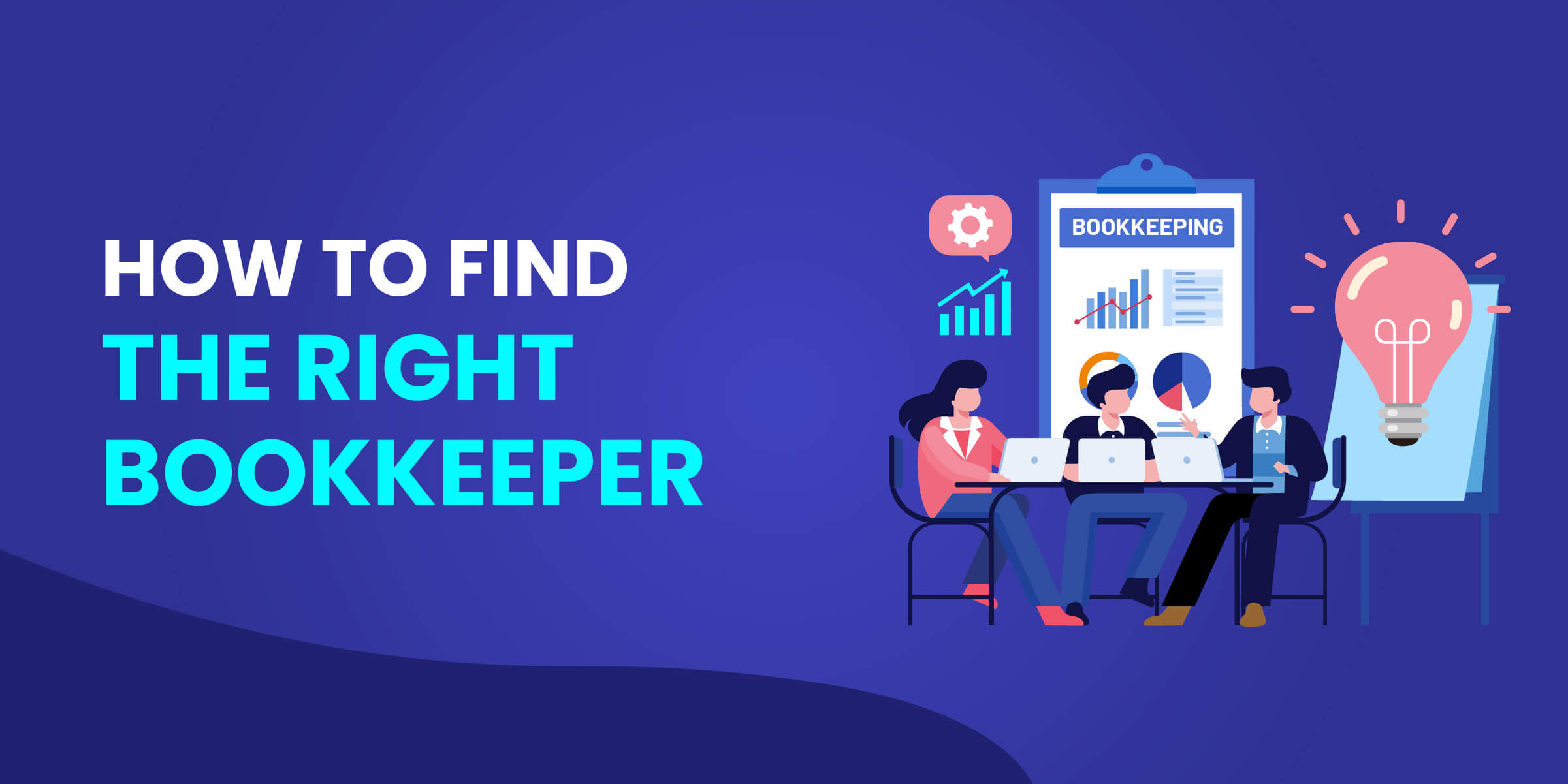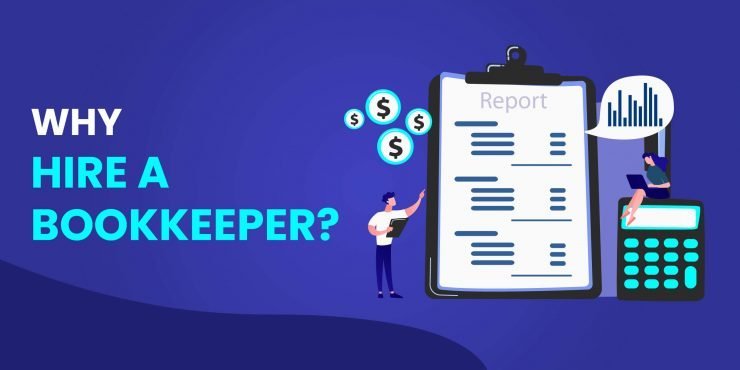When running a business, it's important to keep your finances in order. Hiring a bookkeeper can be the best way to ensure everything is accounted for and organized correctly.
But why should you hire a bookkeeper? What do they do for you? When is the right time to bring one on board?
Let’s explore these questions and more so that you have all of the information needed before deciding whether or not hiring a bookkeeper is right for your business.
I'm a control freak and afraid to trust anyone with my financials. The exception is Colson Strategies who has become a dependable partner. They really know their stuff and are super-friendly.
- Outsourced Bookkeepers, CFOs, and Controllers
- Get expert advice for better financial decisions
- 100% women-owned business
We offer this website completely free to our visitors. To help pay the bills, we’ll often (but not always) set up affiliate relationships with the top providers after selecting our favorites. However, we do our best not to let this impact our choices. There are plenty of high-paying companies we’ve turned down because we didn’t like their product.
An added benefit of our relationships is that we always try to negotiate exclusive discounts for our visitors.
Reasons to Hire a Bookkeeper


A good bookkeeper can provide businesses with financial expertise, time savings, and cost savings.
Financial Expertise
Bookkeepers are trained in accounting principles and practices that help them keep accurate records of the company’s finances. They understand how to read financial statements and interpret the data into useful information for decision-making purposes.
With their knowledge of tax laws, they can also help ensure that your business is compliant with all applicable regulations and filing requirements.
Save Time
Bookkeepers free up valuable time for other tasks by taking on the tedious job of record keeping and data entry as well as preparing reports such as income statements or balance sheets, so you don't have to do it yourself or hire additional staff members to handle these duties.
Cost Savings
Hiring a bookkeeper instead of doing everything yourself saves money in two ways.
Firstly, you don't need to pay someone else's salary if you outsource this work. Check out our guide on how much a bookkeeper costs.
Secondly, having accurate records helps reduce errors which could result in costly fines from government agencies due to incorrect filings or noncompliance with regulations related to taxes or other areas such as payroll deductions or employee benefits plans, etc. This means more money saved over time!
Overall, hiring a qualified bookkeeper provides businesses with numerous advantages. These include increased accuracy in record keeping, timely reporting on financial performance indicators such as cash flow management, compliance with tax laws and regulations which reduces potential liabilities and penalties associated with non-compliance, and freeing up internal resources to focus on core activities while saving costs at the same time.
What Bookkeepers Do for You


Bookkeepers are an invaluable resource that provides financial expertise that can help companies make informed decisions about their finances and ensure accurate record-keeping and data entry.
Record Keeping and Data Entry
Bookkeepers are responsible for accurately recording the day-to-day transactions of a business, such as sales, purchases, payroll expenses, etc., in order to maintain accurate financial records.
This is done through manual or computerized accounting systems that track income and expenses over time so that businesses can monitor their performance more effectively.
Financial Reporting and Analysis
Bookkeepers also prepare financial statements such as balance sheets, profit & loss statements, cash flow reports, etc., which allow businesses to assess their current financial position at any given time.
They may also analyze these reports in order to identify areas where improvements could be made or potential risks avoided in the future.
Tax Preparation and Compliance
Finally, bookkeepers will also assist with tax preparation by ensuring that all relevant information is reported correctly on tax returns each year in order to comply with applicable laws and regulations while minimizing the amount of taxes owed by the company if possible.
Bookkeeping services offer numerous benefits for businesses, such as providing expert advice on how to best manage finances and reducing costs associated with maintaining accurate records over time. This ultimately helps them achieve greater success in the long run.
With their expertise in record keeping, financial reporting and analysis, and tax preparation, businesses can ensure that their business runs smoothly and efficiently.
When to Hire a Bookkeeper


Hiring a bookkeeper can be beneficial for businesses in several ways and there are certain situations when it is especially important to consider bringing one on board.
Growing Businesses or Startups Need Help with Finances
As a business grows, so do its financial needs and responsibilities.
A bookkeeper can help manage these growing complexities by keeping accurate records of transactions, reconciling accounts, preparing reports, and more.
For startups that may not have an established accounting system in place yet, hiring a bookkeeper can provide the necessary guidance and expertise needed to get off the ground quickly and efficiently.
Limited Internal Resources or Expertise in Accounting/Finance Department
If your business has limited resources within its accounting and finance department or lacks expertise in this area altogether, then hiring a qualified professional is essential for ensuring accuracy and efficiency when handling financial matters such as payroll processing or tax filing requirements.
With their knowledge of accounting principles and procedures, bookkeepers will be able to ensure that all financial tasks are handled properly while freeing up time for other areas of focus within the company’s operations.
Too Much Work for One Person to Handle Alone
When dealing with complex financial matters such as budgeting or forecasting cash flow needs, having too much work for one person alone can lead to mistakes being made due to a lack of time available for proper review before decisions need to be made.
Having someone dedicated solely to managing finances will allow you peace of mind knowing that all data is accurate without taking away from other duties needing attention throughout the day.
Overall, if your business is facing any of these scenarios, hiring a bookkeeper should be considered as part of your strategy. They bring valuable experience and free up internal resources, allowing you more time to focus on running your business successfully.
Qualities of a Good Bookkeeper


A good bookkeeper should have a keen eye for detail when it comes to record-keeping and reporting, be able to accurately track financial data such as expenses, income, assets, liabilities, and more, and be knowledgeable of accounting principles, practices, and procedures in order to properly manage finances for businesses or individuals.
This includes understanding the different types of accounts used in accounting (e.g., asset accounts vs liability accounts) as well as being familiar with common accounting terms (e.g., debit/credit).
Knowledge of Accounting Software
Bookkeepers should also have the ability to use accounting software effectively in order to keep accurate records of financial transactions and generate reports that provide insight into the business’s financial health.
They need to understand how different features work within the software program they are using so that they can enter data correctly and generate meaningful reports quickly without errors or mistakes.
Organizational Skills
Finally, a good bookkeeper needs excellent organizational skills so that they can stay on top of their workload while managing multiple clients at once if necessary. Being organized helps them stay focused on their tasks while ensuring all deadlines are met promptly without any issues or delays caused by disorganization or lack of focus on important details related to each client’s account(s).
In summary, qualities of a good bookkeeper include attention to detail and accuracy in record keeping and reporting; knowledge of accounting principles, practices, and procedures; the ability to use accounting software effectively; excellent organizational skills; staying focused on tasks while managing multiple clients at once if necessary; meeting deadlines promptly without any issues or delays caused by disorganization or lack of focus on important details related to each client’s account(s).
A good bookkeeper should possess the qualities of accuracy, knowledge, and software proficiency in order to provide accurate financial records.
How to Find the Right Bookkeeper for Your Business


To find the right bookkeeper for your business you should ask for referrals from other business owners, research professional organizations, and check online reviews.
Ask for Referrals from Other Business Owners
One of the best ways to find a qualified bookkeeper is by asking other business owners who they use or have used in the past.
This can help you get an idea of what type of service each one provides, as well as any potential issues they may have had with them in the past. You can also ask if there were any particular qualities or qualifications that made them stand out among others.
Research Professional Organizations
Many professional organizations offer certifications and accreditations related to accounting and finance services, so it’s important to research these organizations before hiring a bookkeeper.
Look into their requirements and standards, such as education level, experience level, etc., so you know exactly what kind of expertise you should be looking for when selecting a candidate.
Check out our guide on hiring an outsourced finance team
Check Online Reviews
It’s always helpful to read online reviews about different bookkeepers before making your decision – this will give you an idea of what other people think about their services and whether or not they would recommend them based on their own experiences with them in the past.
Be sure to check multiple sources including Google Reviews, Yelp!, Angie's List, etc., so that you get a comprehensive overview from various perspectives before deciding which one is right for your needs.
By following these steps carefully when searching for a qualified bookkeeper, you can ensure that all aspects related to managing finances within your business run smoothly without any issues.
I'm a control freak and afraid to trust anyone with my financials. The exception is Colson Strategies who has become a dependable partner. They really know their stuff and are super-friendly.
- Outsourced Bookkeepers, CFOs, and Controllers
- Get expert advice for better financial decisions
- 100% women-owned business
Frequently Asked Questions
Why do you need to hire a bookkeeper?
You need to hire a bookkeeper because they can help ensure accurate financial records, create reports on the company's financial performance, and provide advice on how to save money or increase profits. They also assist with budgeting, forecasting cash flow, managing accounts receivable and payable, preparing taxes, reconciling bank statements, and more.
When should I hire a bookkeeper?
It is recommended to hire a bookkeeper as soon as you begin to generate income from your business.
Is it worth it to hire a bookkeeper?
Yes, hiring a bookkeeper can save you time and money as they can handle accounting tasks and recordkeeping accurately.
How much should a bookkeeper charge?
Bookkeepers in the U.S. charge an average of $22 per hour.






















